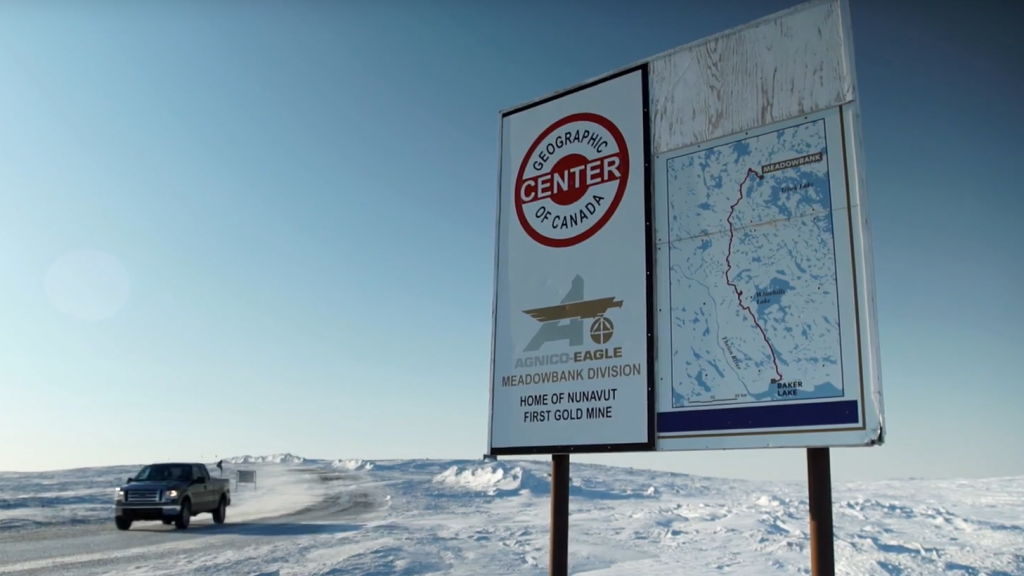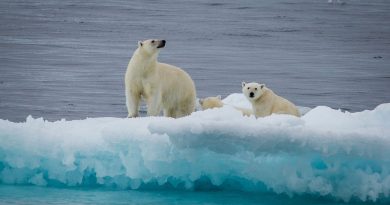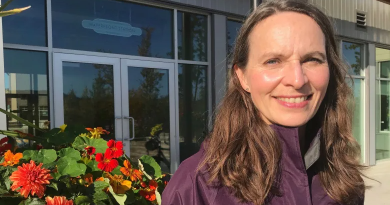Mining companies in Nunavut, Canada defend environmental management despite stiff criticism

The environmental impacts of Nunavut’s two biggest mining companies are not being properly managed, according to Inuit hunters and organizations, governments and non-profits.
That’s what documents on the Nunavut Impact Review Board’s (NIRB) website show about Agnico Eagle’s operations in the Kivalliq, and Baffinland’s Mary River mine in the Baffin region.
The companies mitigate environmental impacts through working groups that include hunters and other Inuit.
These working groups monitor those impacts and recommend adjustments to ongoing mining operations. However, the mining companies are not required to act their advice.
Those involved with the groups, which are supposed to work on consensus, have been raising concerns since at least 2019.
Those concerns include a lack of transparency, power balance and consensus.
Companies dispute failings of working groups
gnico Eagle and Baffinland both declined CBC’s interview requests for this story and provided emailed statements.
Agnico Eagle says the working groups give everyone a chance for deeper discussion.
“We are proud to have found a platform that gives key members a chance to discuss topics related to caribou management and how we can minimize our impact,” Agnico Eagle spokesperson Carl Charest said in an email.
Heather Smiles, manager of stakeholder relations with Baffinland, said in an email that the company values all input and questions raised during working group sessions, and that it is “leading the way in environmental responsibility and Inuit involvement.”
But according to interviews and NIRB documents, many Inuit say they are not listened to.
Without consensus
During a 2019 hearing about Meadowbank Mine, the Baker Lake Hunters and Trappers Association (HTA) raised concerns that the environmental working group lacked transparency and equality.
A year later, Agnico Eagle made significant changes to its caribou management plan for Meadowbank by raising the threshold for the number of caribou migrating nearby that would trigger a road closure from 12 to 75 in the spring; and from 110 to 1,000 in the fall.
The Baker Lake HTA, Nunavut government, Kivalliq Inuit Association and Nunavut Tunngavik Inc. all said Agnico Eagle made the decision without consensus.
The Nunavut government said the new thresholds would “render [existing] caribou protection measures largely ineffective.”
Agnico Eagle withdrew its plan, which remains unchanged today, Charest confirmed.
‘Huge imbalance’
Hilu Tagoona has been following mining regulations near Baker Lake for nearly two decades.
She helped found the non-profit Nunavummiut Makitagunarningit in 2009 to inform the public about uranium mining proposals in Nunavut.
“The idea was that there’s going to be deliberation, consultation, opportunities for consensus, but that’s not what’s occurring,” she said.
Instead, Inuit and community organizations don’t feel heard because mining companies are not obligated to take the advice and input from local experts, she said.
There is a “huge imbalance” in the working group’s process, Tagoona added.
While the industry hires consultants who are dedicated to the process, Inuit hunters and community members on the working groups do not have the same expertise, time or resources on their side, she said.
Inuit tokenized, says Mittimatalik HTA chairperson
A report commissioned by the Clyde River Hunters and Trappers Association and hamlet echoed Tagoona, calling Baffinland’s working groups “dysfunctional and ineffective,” and lacking in equality, trust and consensus.
The only community organization in the Baffinland working groups — the Terrestrial Environment Working Group and the Marine Environment Working Group — is Pond Inlet’s Mittimatalik Hunters and Trappers Association.
Chairperson Eric Ootoovak, told CBC News local hunters are not listened to.
“It seems like we’re just a number, a token. We arrive and sit there beside everybody,” he said.
Transparency is a major issue as concerns, comments and discussions are not made public, he added.
A ‘check-box exercise,’ says QIA
“Baffinland has basically been choosing what and how to monitor, how often. They do these [monitoring] programs, and choose how to analyze the results,” Ootoovak said.
“They’re their own regulator.”
The Qikiqtani Inuit Association (QIA), Oceans North, the World Wildlife Fund and the federal Department of Fisheries and Oceans have all raised concerns about Baffinland’s working groups.
“It is a ‘check-box’ exercise, without any meaningful opportunity for adapting or changing practices based on the results,” the QIA said in a 2019 report.
The Department of Fisheries and Oceans said the working group it sits on is an “imperfect forum” and that it “does not provide a timely mechanism for resolution.”
The World Wildlife Fund urged the NIRB to require Baffinland to implement advice from members of the working group.
The NIRB declined an interview request for this story.
New working groups forming
t’s not just in Nunavut or Canada that mining companies show a lack of respect for the environment and due process, said Hilu Tagoona, a board member of Mining Watch, which monitors mining operations around the world.
Canadian mining companies abroad have been found guilty of violating human rights and environmental regulations, she said.
Many Nunavummiut want development of mines, while ensuring the protection of caribou, narwhal and the land, Tagoona added.
“This will not just be given to us by the industry. We must ensure that we are continuously keeping them in check,” she said.
“These things are not just wants or desires. These are demands and expectations,” said Tagoona.
Both Agnico Eagle and Baffinland are currently drafting terms of reference for new working groups: Agnico Eagle for Meliadine Mine, and Baffinland for phase two of the Mary River Project.
Related stories from around the North:
Canada: Mining company never paid up for environmental damage in Canada’s Northwest Territories, CBC News
Finland: The Arctic Railway – Building a future or destroying a culture?, Eye on the Arctic
Greenland: Canadian geologist raises questions about controversial Greenland mining project, Radio Canada International
Sweden: Reducing emissions could create up to 3,000 new jobs in Arctic Sweden says mining group, Radio Sweden
United States: Conservation groups sue government over Alaska mining road, The Associated Press



